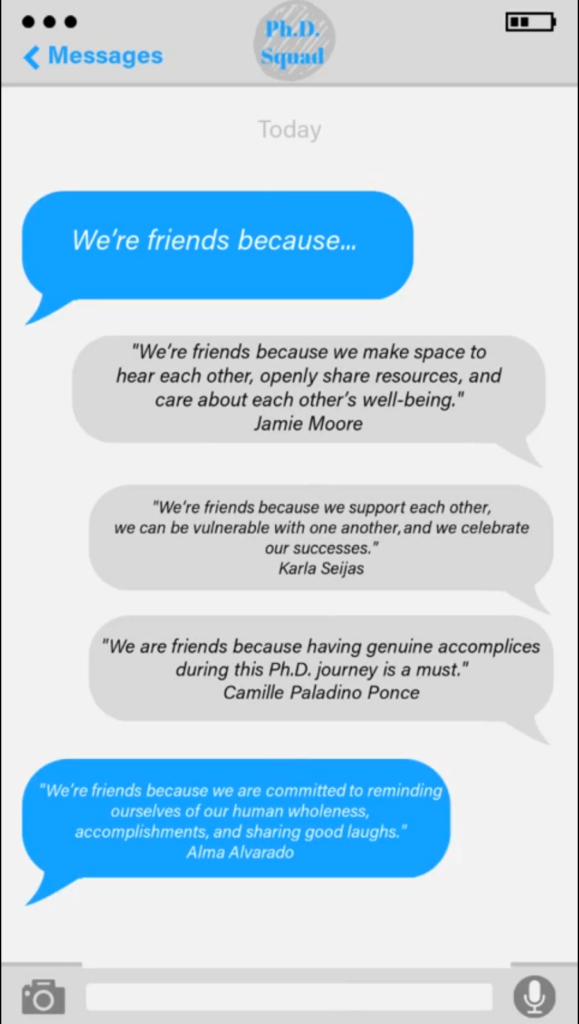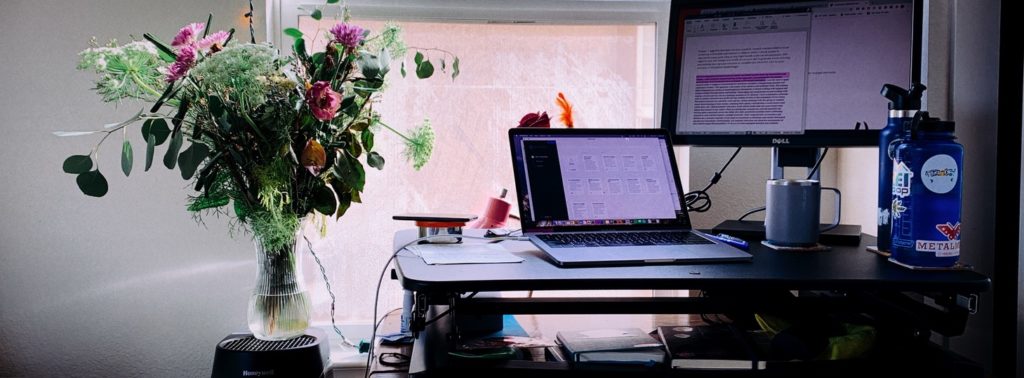By Alma Alvarado Cabrera, Interdisciplinary Humanities Graduate Student, and Semajay Cleaver, English Major at UC Merced
As a child, my mother would tell me stories of when, in her youth, she left her small village to work in the tomato fields in Sinaloa, Mexico. It was a short yet impactful time in her life. The stories that she would share with me are about how a group of older women took care of and mentored her. My mother profoundly cares about friendship and providing care for her children, godchildren, and anyone she encounters. Yet, she struggles with what we call self-care, among other things.
My mother gave me that first mode of care. Let us call this model the señora system: a group of women, usually older, sharing useful information, resources, and care among themselves and those they see mostly need it. After meeting Gloria Anzaldúa, Audre Lorde, and Toni Morrison through their writing, I expanded my mother’s model to include self-care, or as these authors redefined it, “self-preservation” and healing. This señora and poetic model of care has been helping me navigate graduate school and the COVID-19 pandemic. A daily manifestation of this model is a text message group called the “Ph.D. Squad,” which has been around since the Fall of 2019 and is composed of four beautiful, resilient, and caring women: Jamie, Camille, Karla, and me.

Physically, we have not seen each other for almost one year yet are in constant communication through text messaging and social media. Our conversations touch on graduate school life but are not limited to our student or educator lives. Before and throughout the pandemic, we speak of our need to heal multiple personal traumas or academic-specific traumas like impostor syndrome. We remind each other of the importance of rest, setting boundaries, and eating dessert! As expected during our sociopolitical climates, we also vent and complain in the group. And memes are frequently shared!

When coping with physical isolation, the Ph.D. Squad is a reminder that we can be with each other. It is a reminder that we can practice listening, caring, healing, and grieving together without being in the same physical space. It is also a space that reminds us of what could be once we can be in the same physical places. It is an invitation to dream and imagine a classroom, offices, or community spaces where healthy communication and care continue to be centered. Shouldn’t care and healing always be a priority when working with underserved communities?
I am inviting you to pay attention to the communities of care that help us cope with the challenges of the pandemics we experience. What makes them communities of care? What makes them sustainable? Let us take note of what makes these communities of care so that we can replicate them. What can we learn from them? And how can we ensure that they continue thriving? We will eventually return to our work or gathering in places. Do we want these communities to continue? Systems of care were not perfect before the world was shocked by COVID-19 and other socioeconomic pandemics. The violence that these pandemics exposed will not go away with the vaccine.
Conversations surrounding care, the active practice of allyship, and highlighting students’ agency should continue by providing our students with a flexible syllabus and reminding them of their agency. To imagine this future, I collaborated with Semajay Cleaver, my friend and former student. We virtually met amid the pandemic when I was a Teaching Assistant for English 102, a class under Dr. Felicia Lopez’s leadership. The conversations on care and healing have continued beyond our class discussion. We have been experiencing the pandemic alongside our students, and I hope we can invite them to speak of imagining new models of care. Semajay Cleaver is my brilliant and creative collaborator, who wrote this poem to encourage our commitment toward a continuous conversation about practicing care:
I care,
Dreaming that we can bring comfort in the communities we share,
My well-being is like a jewel hidden at the bottom of a systematic pyramid guarded by traps,
I’ve tried all I could to get back,
To our roots.
Of comfort, love, hope, and understanding
It’s time we start planning, to provide a safe space
A place,
For all, no matter the gender, size, or race
It’s time to make the people in charge aware,
That underserved communities deserve their care… to be highlighted,
A place where all are invited,
Plenty would be delighted, to be reminded, that they matter.
No more acting as if you’d be indicted for focusing on your mental and emotional stability
Focus the mind, relax the soul, and allow tranquility
Centrémonos en el cuidado mental y emocional
Y lo haremos tradicional
Imagine all that we could be,
More than just you and me,
Heal and rebuild the self-care community
Growth is a result when there’s care
Longevity spreads through the air,
As if a seed has been planted at the base of your fingers and sprouting from the roots of your hair
I care,
I will no longer allow you to suppress yourself in the darkness of any kind,
You shine,
Listen to these words of mine,
Eres una estrella, brillando intensamente, se dirige lejos
You are loved.
Selfcare should come above… anything you believe matters more.
There’s always a closed door,
But there’s also an open window waiting for that leap of faith,
And if you’re still unsure, take a chance, close your eyes, and I promise you’ll soar.
I care,
For you, and so many more,
In hopes that we can return,
Love and appreciation into ourselves
The self-care community is screaming for help.
I Care

